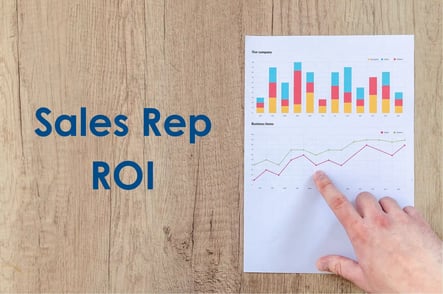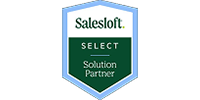8 Attributes of a High-Performing SDR Team
As more organizations recognize the value of having an SDR team in their sales organization how do you make your SDR team stand out from your competitors’? At FullFunnel, we spend a great deal of our time looking at SDR teams. We’ve seen what works and what doesn’t. Here are eight traits we see in high-performing SDR teams, as well as what you can do to make sure your team possesses them.
What Is High-Performance?
Before we start with our list, it’s important to define what we mean by high-performance in an SDR team. Different companies will prioritize different things from their SDR team.
It could be the velocity at which they move opportunities through their pipeline. It could be the amount of revenue generated or the number of opportunities driven.
The best way to define high-performance so that it translates across organizations, is how well the performance of the SDR team aligns with the sales culture? Does the SDR team’s performance fit in with the vision set by the leader?
Now, let’s look at eight attributes of a high-performance sales team.
1. Talented People
This sounds obvious. The SDR teams that perform best will have the best people in them. However, there’s more to it than that. The vision for your sales team starts with the talent that is already there. Once you have set your vision, you can hire people that match that vision and drive it forward.
What makes a top-performing SDR? That’s for another article!
2. Consistency
A high-performing SDR team will be part of a sales machine, designed to be predictable and scalable. The organization should be able to replicate its sales process wherever they go across the world with perhaps a few minor tweaks. It should be able to run smoothly as people come and go.
In this setup, SDRs need to stick to a well-defined sales process. You cannot have top producers as lone wolves running their own shows. Poor performers cannot be going outside the lines to try and improve. Consistency is key.
3. A Focus On The Metrics That Matter
Today’s tech-driven world of sales produces a large number of metrics. Depending on the vision and goals of your sales team, some will be essential, core metrics. Everyone in a high-performing SDR team will understand the core metrics, how they affect the team and how they can individually influence them. These metrics will drive every conversation within the team. How does an idea improve the core metrics?
A poor grasp of metrics is a hindrance to accountability. Common understanding creates opportunities to improve performance.
4. A Coaching Culture
Even though they are by definition performing well, high-performance teams strive to improve. Team leaders will take time to manage, mentor, and coach their staff. Conversely, SDRs will see coaching sessions as a chance to get feedback and advance, rather than criticism.
It takes time and conscious effort to establish a coaching culture. You need to get in the weeds. However, it’s worth it.
5. Team Goals
Sales used to be about looking after yourself first. Today, however, high-performance teams work together towards common goals. Great SDR teams will have goals to aim towards, sometimes based on revenue, but not necessarily. For example, teams may be aiming to make a certain number of calls across a week or month.
Each SDR will know what they personally have to contribute to make these goals a reality. While it’s a cooperative exercise, it can also drive healthy competition. Friendly rivalries can be great motivators in SDR teams, as well as incentives (SPIFFs) for team-oriented goals.
6. Fun
SDRs in high-performing teams genuinely like each other. They have fun working together. They are close, sticking together through times of adversity, and celebrate each other’s successes.
Leaders should create a culture where each member enjoys what they do and wants to succeed for their team. This relies on an understanding of what motivates each individual in the team. Different SDRs will be driven by different things.
7. A Goal-Alligned Comp Plan
Compensation can be used to drive your team in the direction of your vision. For example, if your goal is to create grinders who bring make large quantities of calls every day, you can bonus them on call volumes. On the other hand, if you want people who feel secure enough in their roles that they can take time to nurture leads, which in turn leads to larger deal sizes, you can reward them accordingly.
8. Automation & Tech
In the highest-performing teams, leaders look at the sales process and the tasks individual SDRs need to complete. Then, they look to see if tech can make it quicker and easier. For example, if tech can reduce data entry or other admin tasks, SDRs can spend more time on the phone with customers.
Tech can aid SDRs in almost everything they do, from lead gen to emailing. Tech helps them keep track of their customers and their pipelines. You can also use tech to help SDRs improve. For example, call-recording software can help leaders find coaching opportunities.
* * *
If your SDR team isn't performing up to your expectations, we can help. Whether you're seeking to build an outsourced team or upskill an existing one, we possess the know-how to help you do it the right way. Request a free consultation to learn more!

.jpg)









